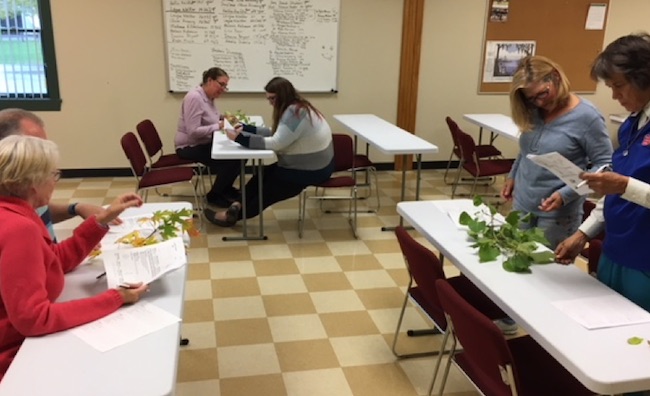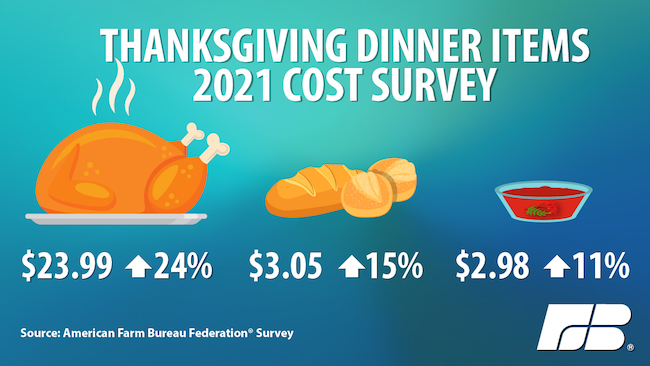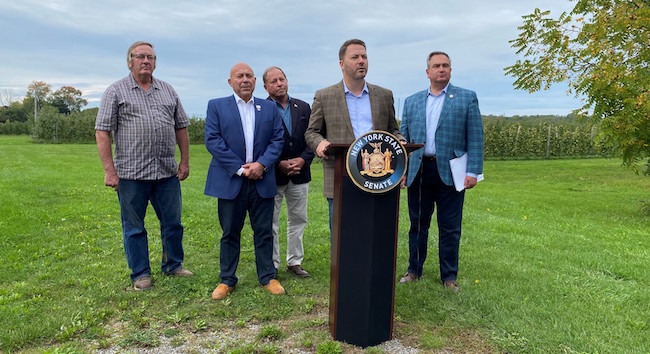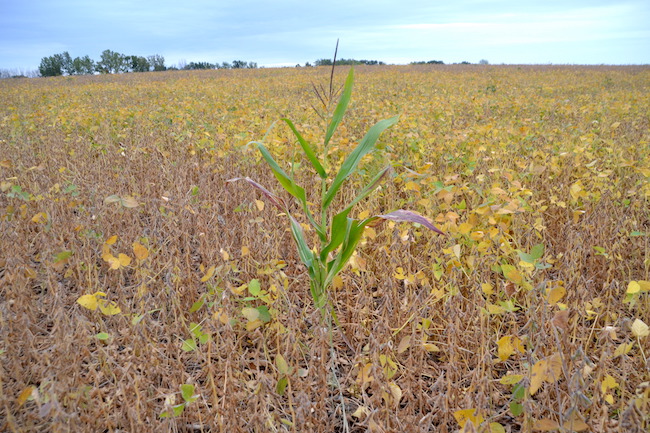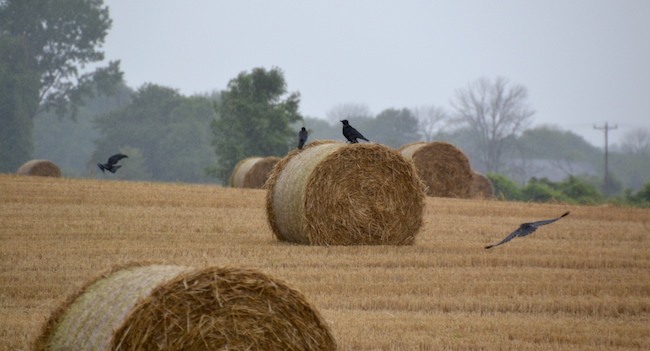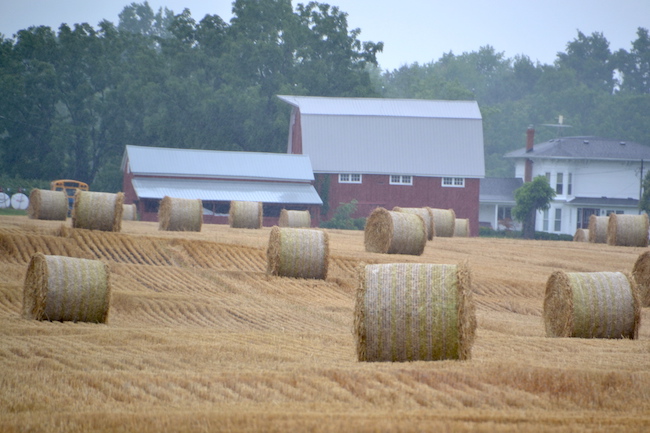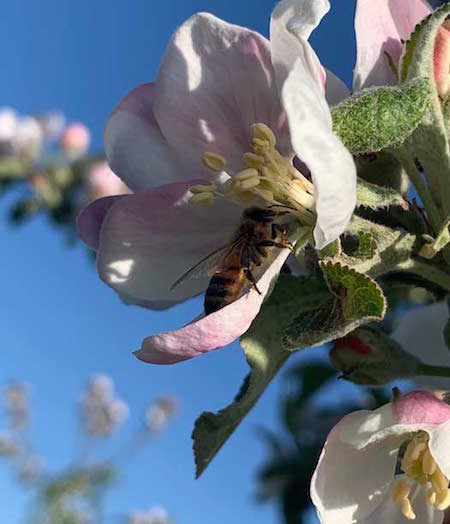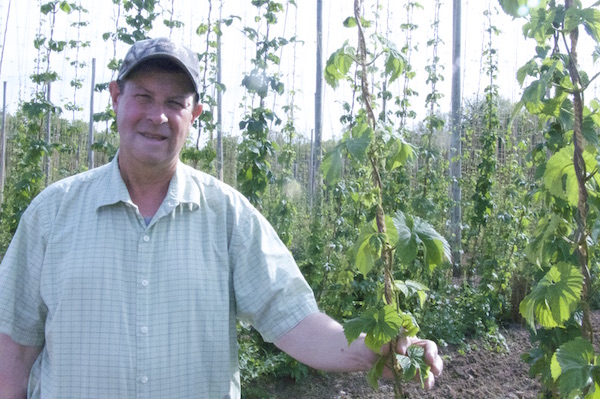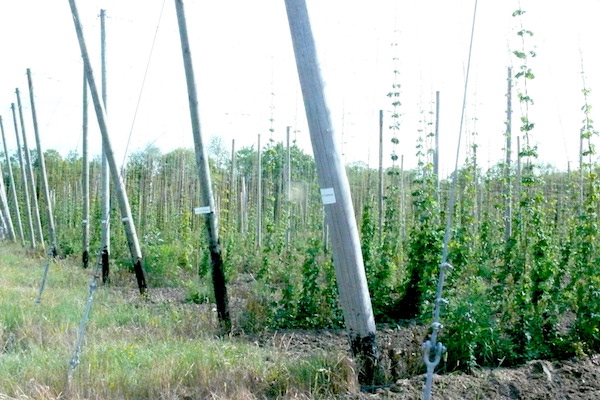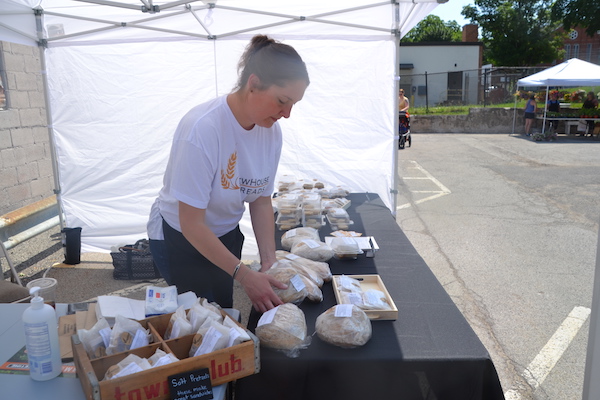Master Gardener training will be offered hybrid – in person and online
Press Release, Cornell Cooperative Extension of Orleans County

Master Gardener Eileen Sorochty teaches a class on Hypertufa in 2019. Educational classes for the public are just one of the ways that Master Gardeners volunteer their time.
KNOWLESVILLE – Orleans County CCE is hosting a new hybrid Master Gardener training starting in January of 2022. The training is the first step towards becoming a Master Gardener volunteer with Cornell Cooperative Extension. This is the first year the training is being offered as an online/in-person hybrid course.
Master Gardener training has been offered for decades across NY state, but the core coursework has been in need of an update for some time. With the help of grant funding and input from volunteers and staff across the state, senior extension educators at Cornell spent the better part of 2019 curating the online content to offer thorough and in-depth lessons geared toward the adult learner.
The result is an online course packed with information on key topics such as Plant Biology, Food Gardening, Entomology and more, as well as options for more detailed content on specific topics under the “Explore and Learn More” link under each general section.
“I’m so impressed with this new hybrid format” said Katie Oakes, Horticulture Educator at Orleans CCE and coordinator of the Master Gardener program. “There is so much to learn within the training program, and an online format really allows participants to work at their own pace, on their own schedule.”
The training this coming winter will start January 13th and go until April 7th. Participants will be given access to the online portion of the course on the Moodle educational platform where they complete lessons on their own. The group will then meet every other week (dates vary) to reinforce key concepts and to complete several hands-on activities designed to put into practice what they learned on the Moodle course the weeks before.
“I think it’s really important to still have the in-person aspect,” explained Oakes, “Meeting in person builds that sense of community that might come a little less naturally in an online forum setting. Having the hands-on activities is really crucial, too, because people retain so much more knowledge by actually doing rather than simply observing.”
Past Master Gardener Trainings have consisted of sixteen 3-hour long lecture style classes covering a range of topics. The schedule was often difficult for participants with young families at home, full-time jobs, or other obligations. This new online course will give all participants the opportunity to gain knowledge and participate fully with a distance-learning perspective. The online course also includes extensive additional information that a fully in-person training just could not accommodate time-wise.
“This new online format makes it so much easier to access valuable resources – and there are a lot! There’s so much excellent information included in this training, several of the videos and links to articles I can’t wait to re-visit and look at again!” said Nancy Halstead, an Orleans County Master Gardener who took the piloted online course as a trial last winter.
After completion of the training, participants can complete 40 hours of volunteer service through the various programs at Orleans CCE to become a full-fledged Master Gardener Volunteer. Becoming a Master Gardener allows participants to become a part of a nation-wide volunteer association focused on extending land-grant university’s research and expertise to the public in their own local communities.
Current MG Volunteers in Orleans County serve the community in many different ways – offering educational classes to the public, hosting informational tables at local events, speaking at area garden clubs, displaying at farmers markets and the 4-H Fair, collaborating with other CCE programs like 4-H and Master Food Preservers and more! There are about 20 active MG Volunteers in Orleans County, and in addition to monthly meetings, the volunteers get together for field trips, gardening conferences, and social outings as well.
“I really love the camaraderie that comes with being a part of this group!” said long-time MG Volunteer Eileen Sorochty “It’s so wonderful to be around like-minded people caring about our environment and each other’s well-being. Being a Master Gardener has enriched my life in so many ways.”
The deadline to register for the upcoming Master Gardener training (with a $50 non-refundable deposit) is December 22. Cost for the training is typically $200 per person, but there is a 50% discount for the first ten people to register (a $100 value). Reduced rate tuition is also available for additional participants as needed. If internet accessibility is an issue, participants can utilize office hours at the Orleans County CCE Education Center M-F 8:30-4:30 to access the course using CCE wifi and computers.
For more information on the Master Gardener program in Orleans County, or to register for the upcoming Master Gardener Training, contact Horticulture Educator and MG Coordinator Katie Oakes at 585-798-4265 ext. 125 or email klo54@cornell.edu.
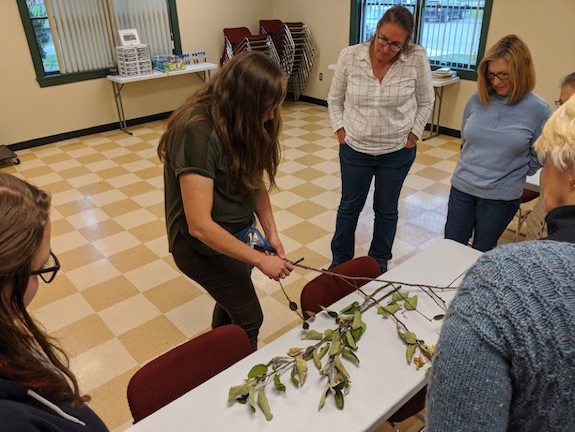
Horticulture educator and MG Training Instructor Katie Oakes demonstrates a grafting technique during a past Master Gardener Training.



















